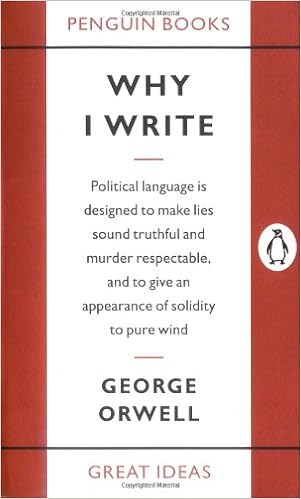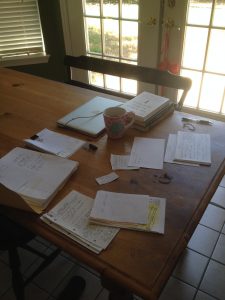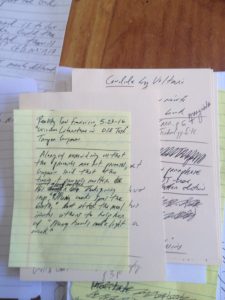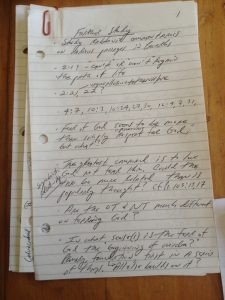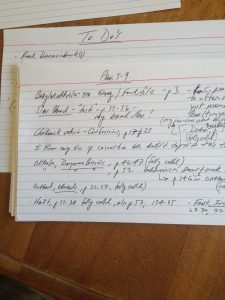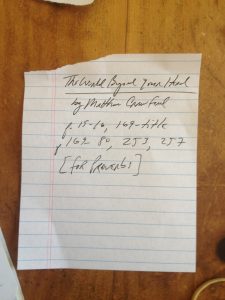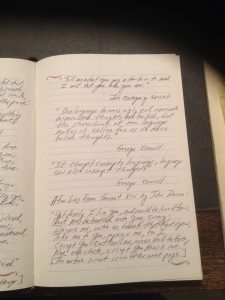
I write down many things as I read. One of my commonplace books is pictured above. They are wonderful friends who have been with me for many years.
If you are not familiar with a commonplace book, listen to this description by Tracy McKenzie of Wheaton and consider using one yourself!:
Last week I began a new feature on this blog that I am calling “From My Commonplace Book.” A commonplace book is a journal in which you record favorite quotes from what you are reading, and sometimes the thoughts that they evoke. In the 17th, 18th, and 19th centuries, it was not uncommon for students to be required to keep a commonplace book, and many of the leading lights of the American revolutionary generation did so. I’ve been doing so now for more than a year, selecting quotes that help me to think through my calling as a Christian, historian, and teacher.
I could type them on my laptop, but I like the idea of writing the quotes out by hand. For one thing, it heightens the sense that I am following in the footsteps of those who have gone before me. We live in a present-tense society that dismisses 94 percent of all the human beings who have ever drawn breath on this planet simply because they are no longer living. When I sit down to my commonplace book with pen in hand, I am self-consciously engaging in a countercultural act. It’s a symbolic gesture but no less important for that. It helps me, imaginatively, to think of myself as entering into a grand conversation about enduring questions, something far bigger than the transient fads and obsessions that so easily steal the best days of our lives.
Writing the quotes out by hand also forces me to slow down, and that in itself is a countercultural act as well. By lingering over a passage and recording it with painstaking care, I am symbolically setting it apart from the ocean of information that inundates me daily. Much of that information may be valuable, but the passages that go into my commonplace book are life-changing.


